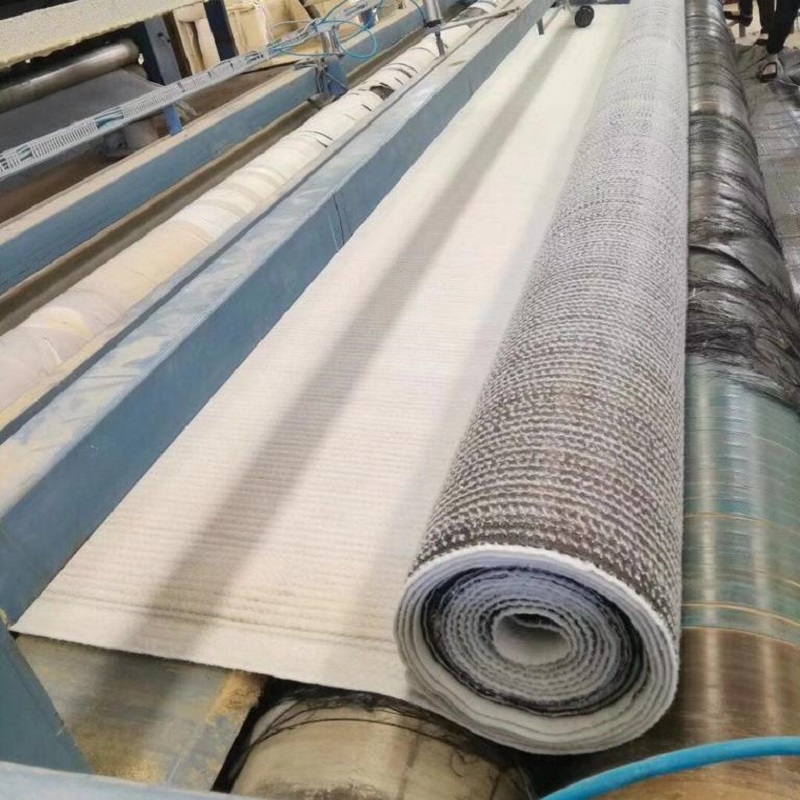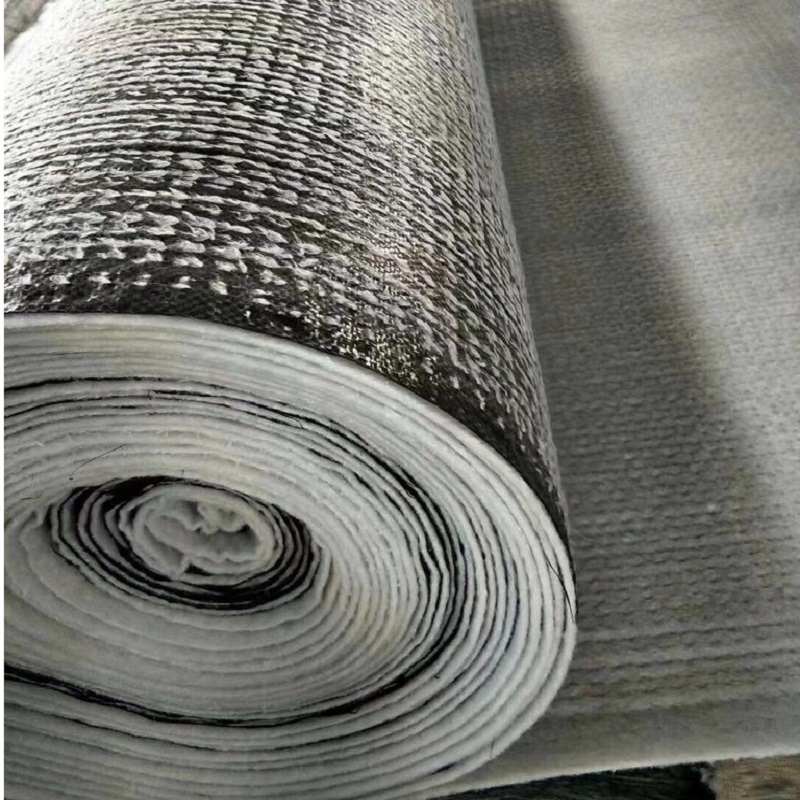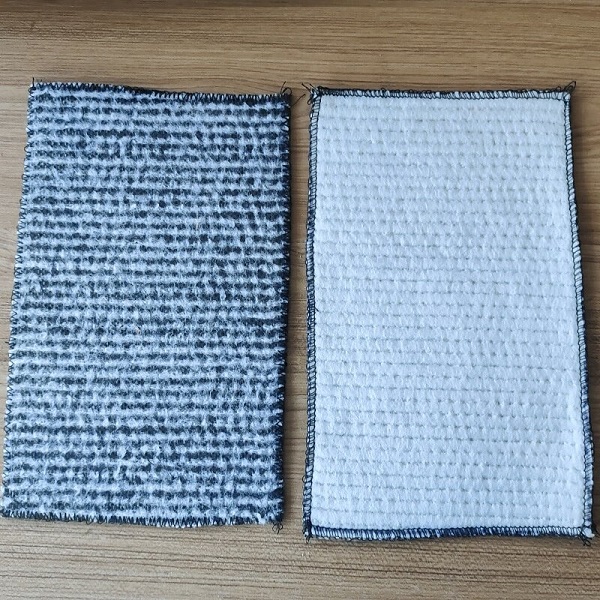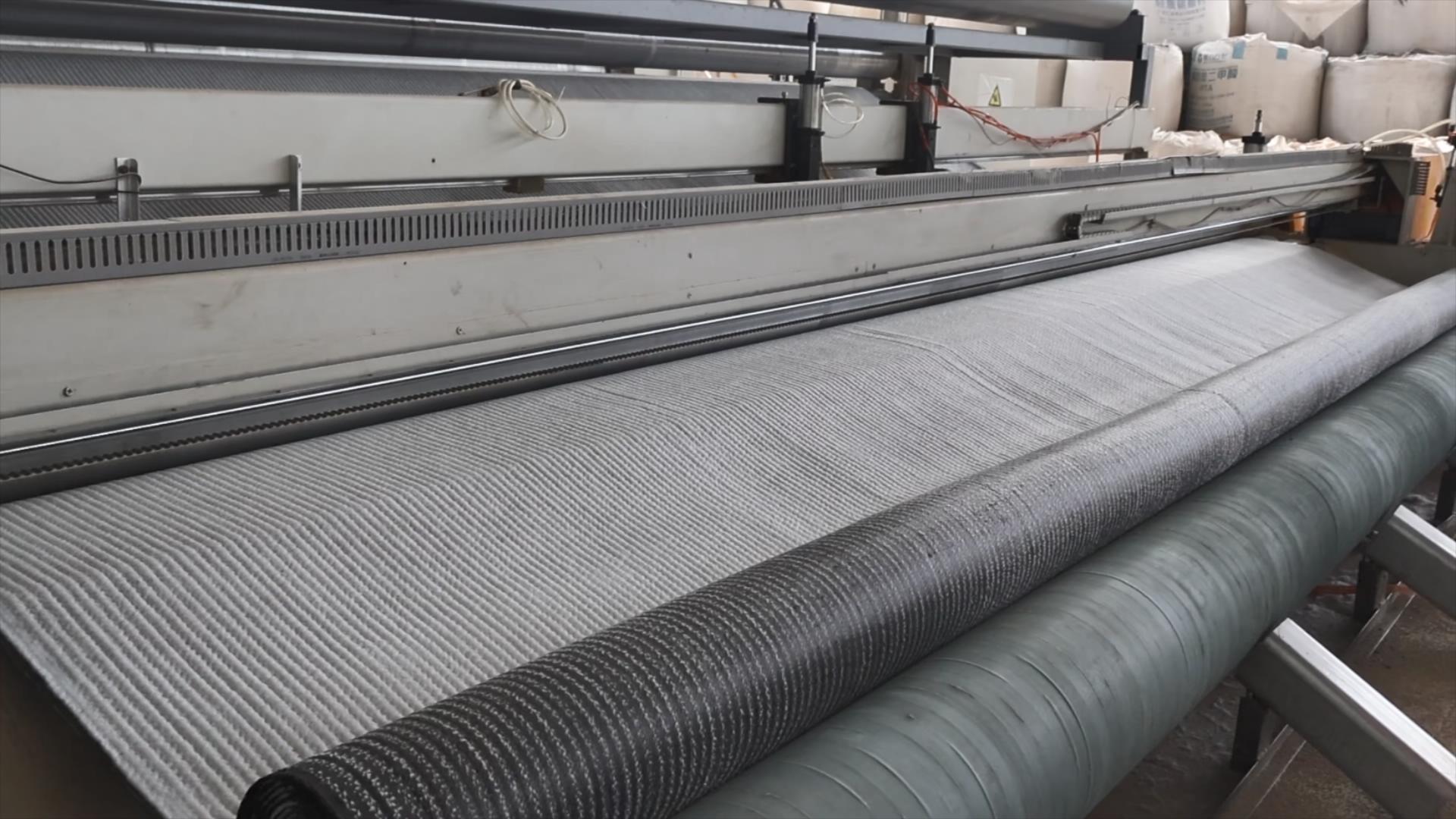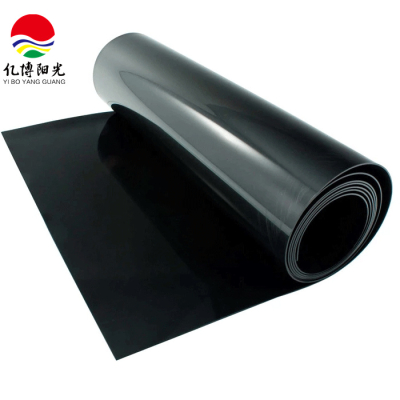Excellent Waterproof Performance: The sodium-based bentonite in the GCL swells when it comes into contact with water, forming a dense gelatinous waterproof layer with extremely low water permeability, which can effectively prevent water seepage and achieve excellent waterproofing effects.
Good Self-healing Ability: It has an expansion capacity of 20 to 28 times. For minor cracks, holes and other defects in the base layer, it can fill and repair them through its own expansion, ensuring the integrity of the waterproofing system.
Convenient Construction: The construction process is simple. There is no need for special equipment or professional technicians. It can be directly laid, reducing the construction steps and time and improving the construction efficiency.
Strong Adaptability: It can adapt to different construction environments and base layer conditions. Whether on a wet base layer or in cold weather (it can still be constructed at -20°C), it can maintain good performance.
Environmentally Friendly and Non-toxic: Taking natural sodium-based bentonite as the main raw material, it contains no harmful substances, is harmless to the human body and the environment, and meets environmental protection requirements.
High Cost-effectiveness: The product has a long service life, which can reach more than 50 years. Considering its waterproofing effect and service life comprehensively, compared with other waterproofing materials, it has a high cost-performance ratio.
Compatibility with Various Materials: It can combine well with a variety of materials such as concrete, masonry, and geotextiles to jointly form a reliable waterproof structure.
Certain Puncture Resistance: Due to its structural characteristics and material properties, it has a certain degree of puncture resistance and can withstand the damage to the waterproof layer caused by external factors.

